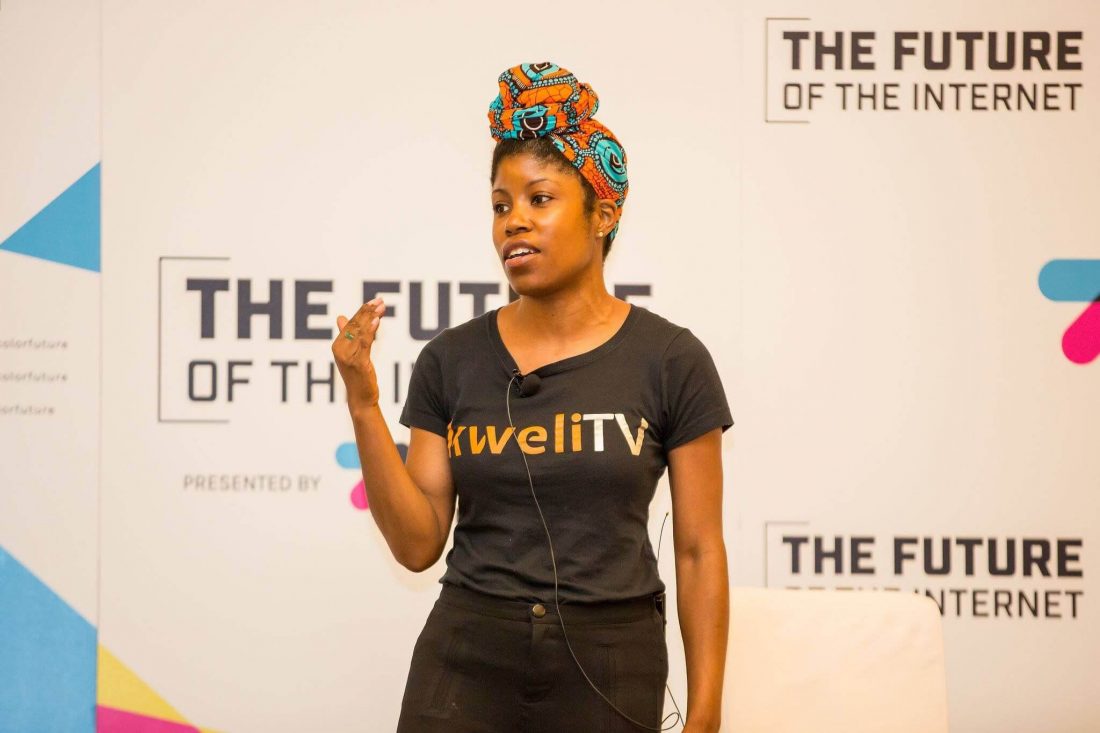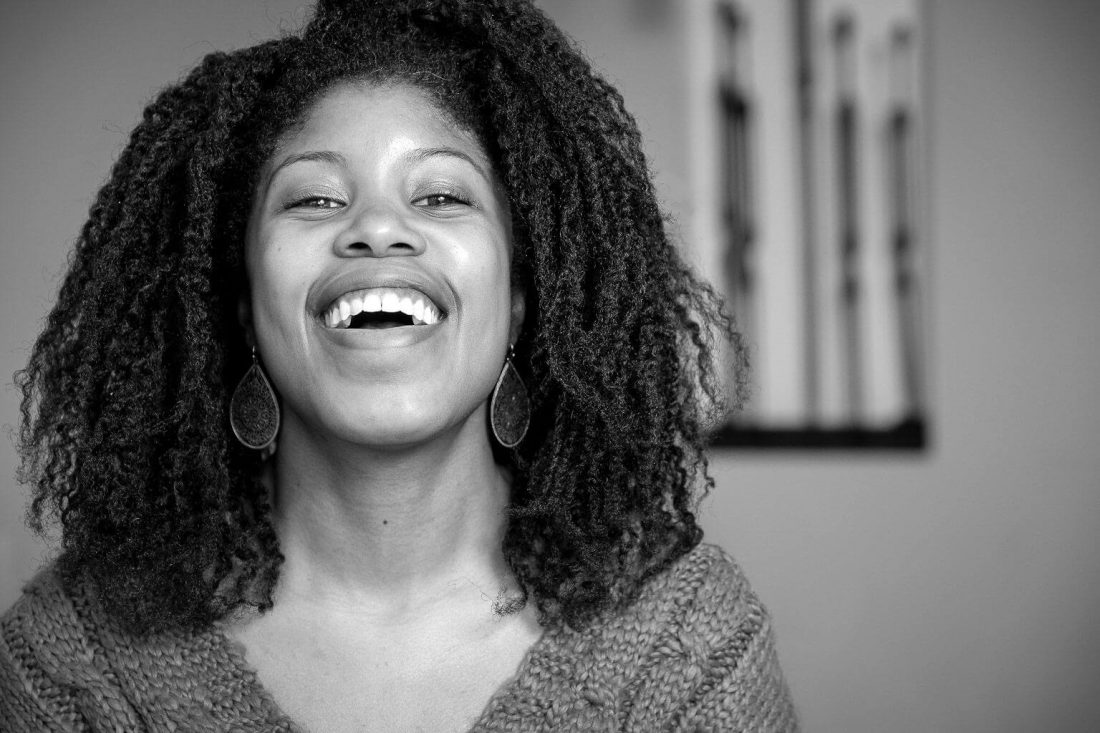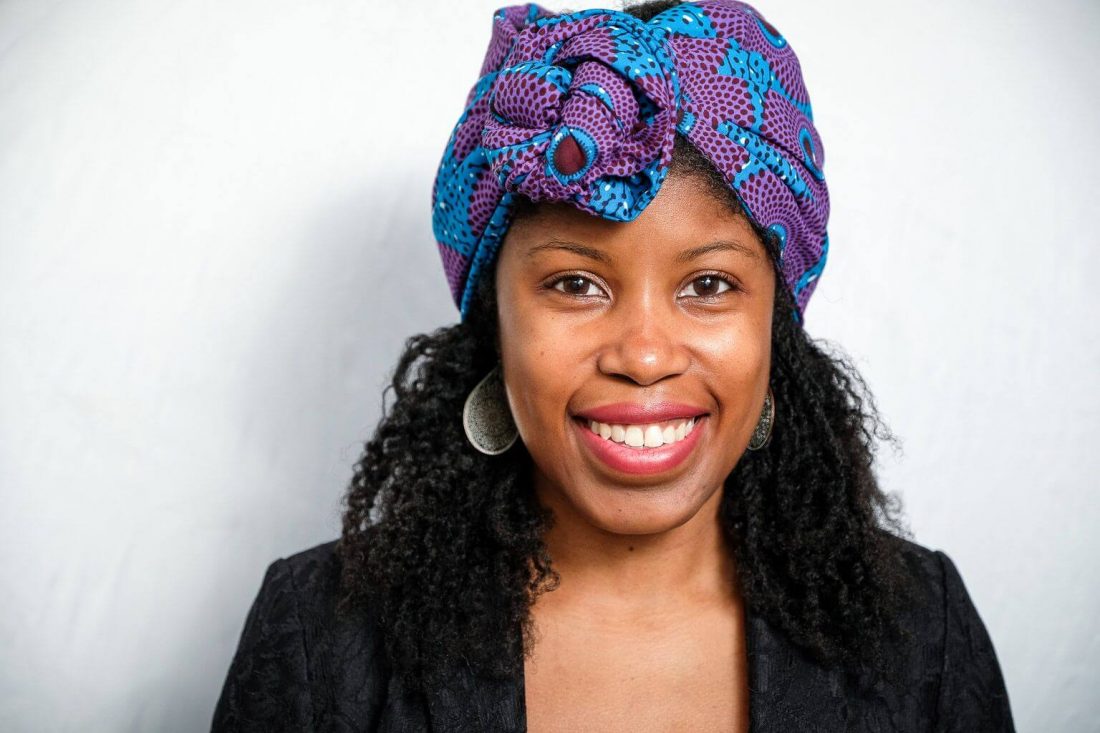Kweli TV founder and chief executive officer, DeShuna Spencer talks to Melan about her journey creating a video streaming service for Black filmmakers.

Kweli TV has grown from about 2,000 subscribers to 35,000 paying subscribers, livestream users and people renting content in just two years. Founder and chief executive officer, DeShuna Spencer, was reluctant to share the exact data, but it doesn’t matter. Approximate figures are enough to show-off Kweli TV’s impressive growth since it launched in 2018 as a way to change the narratives surrounding Black people’s experiences.
‘Kweli’ means ‘truth’ in Swahili and is an antidote to authentic Black stories being suppressed in the film and TV industry. The truth is, Black creatives are resisting being presented as a monolith or stereotype.
‘Kweli’ means ‘truth’ in Swahili and is an antidote to authentic Black stories being suppressed in the film and TV industry.
The more disappointing truth highlighted by DeShuna is they will continue to be so until more alternative outlets exist where the breadth of the Black experience is showcased and understood.
While media giants like Hulu, Netflix and Amazon monopolise content and creators face barriers getting commissioned for TV, it doesn’t leave “wiggle room for innovation or black ownership,” she said.
“As a Black American, there’s a very small narrative about what this experience is like. I believe negative images have a negative impact on us personally and on how other non-Black people perceive us. One of Kweli TV’s missions was to change that narrative and diversify the types of stories we tell on our platform, and to also create a space for black creatives to share their work and amplify their stories.”
This explains why you won’t find any generic “urban” content on Kweli TV – though it’s a term DeShuna takes umbrage with – unless the story has a deeper message or is a means to show the growth of a character.

All submissions must have been shown at a film festival – just 2% of content hasn’t been – and will have been screened by the team to ensure it’s not demeaning to Black people or is a stereotypical representation. Besides that, Kweli TV is open to all types of films.
“Science-fiction is something customers are asking for as well as children’s programming.”
Kweli TV has acquired worldwide rights to 95% of its now 400-plus titles so is accessible globally, including in the UK for $5.99 so less than £5.
Recently promoted films include animation A Kalabanda Ate My Homework about a mythical creature said to haunt schools in Uganda and Afro Germany, a historical documentary exploring Black identity in Germany.
UK filmmakers like Menelik Shabazz, Annetta Laufer, Shola Amoo, Clare Anyiam-Osigwe, Damien Swaby and Anthony Abuah are on Kweli TV too.
Creators receive regular payments based on how many people watch their work on a non-exclusive basis unlike larger corporations that might offer a filmmaker one lump-sum payment for exclusive rights to their film.
This same type of deal led British screenwriter and actress Michaela Coel to turn down Netflix’s $1million (£800,000) offer for I May Destroy You when they refused to give her any copyright to her own show.
Her bid for 0.5% was responded to with silence, she recalled in a Forbes interview.
“How can you build generational wealth if you’re having to give away your stories to platforms that will make money from it over time while they give you one cheque?”
Washington DC-based DeShuna watched the “amazing” BBC show on HBO. She said: “How can you build generational wealth if you’re having to give away your stories to platforms that will make money from it over time while they give you one cheque?” DeShuna said.
“I can’t guarantee how many people will watch any show on Kweli TV, but on an exclusive deal you can’t do anything else, so the creator is dependent on the platform when the company is likely to be more focused on promoting their original content. Unless said film is a big box office hit. Of course, everyone should go wherever they feel most comfortable, but we just want to be an alternative for people having difficulty getting onto those platforms.”
When DeShuna started pitching Kweli TV, she remembers patronising questions like: “Can your demographic afford this?”. “I’d have to include in the pitch about how Black people have money not just in America but in other parts of the world like Europe.”

The former journalist and communications director recalled the streaming service being described as an “African-American Netflix” too in its infancy. She said: “Just as Netflix had goals of being global, so do I. This is for the African diaspora so we’re everywhere. That’s my long-term goal – to be a global company so we can expand our base. I want to make the website more multilingual to make sure our content is accessible for everyone and I also want to create original programmes in the future. There’s huge potential.”
It was a big deal for Memphis-born DeShuna to leave the journalism industry. She thought her online magazine emPower would be her “life’s work” but “over time that passion turned to frustration because of the publishing industry and the difficulty in monetising the written word,” she explained.
“I’m always afraid, but I do it anyway because I believe in my mission and that a few media companies shouldn’t control the media.”
“Then I had this love-hate relationship for the media because everyone seemed to be telling the same story and writing about the same people. I decided to take a step back and focus on Kweli TV when the idea came to me and I did my own documentary [Mom Interrupted] before I started.”
Though she described herself as been “slightly crazy” for choosing to be an entrepreneur in a field that her competitors could wipe her out at any time – her deeper values are why she’s risking it all.
DeShuna added: “I’m always afraid, but I do it anyway because I believe in my mission and that a few media companies shouldn’t control the media. I’m really passionate about Black storytelling and authentic storytelling so that keeps me going.”
Visit the Kweli TV website.
Social media handles: @kwelitv (IG, FB, and Twitter)












